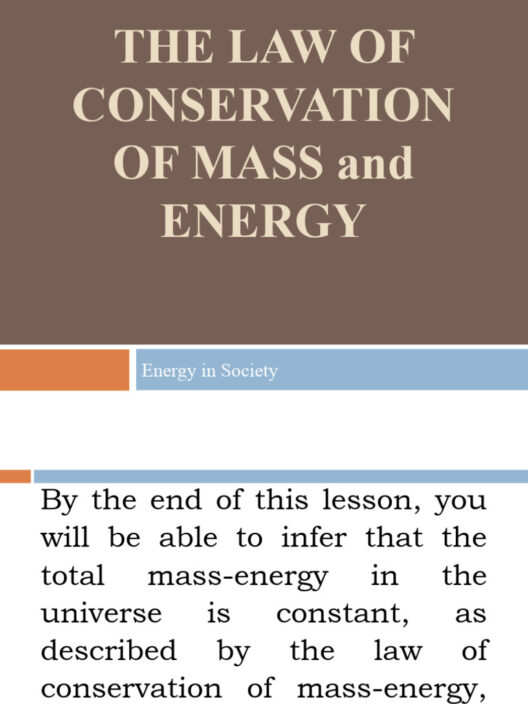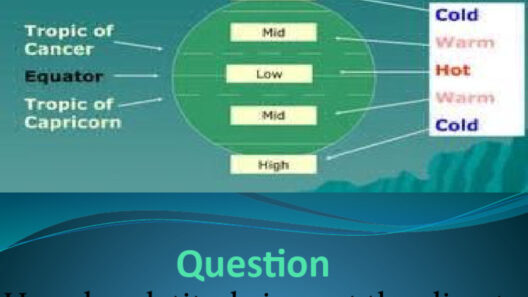As our world undergoes profound shifts, both social and environmental, the dialogue around climate change has escalated. The urgency is palpable, yet discussions often overlook the multifaceted implications of climate change. This article delves into the crux of the climate conversation, emphasizing its importance in our current epoch and inspiring a reflective viewpoint on the relationship humanity shares with the environment.
Understanding the Present: Climate Crisis as a Global Phenomenon
The climate crisis doesn’t merely signify a rise in average global temperatures; it encapsulates a myriad of factors that interconnect ecological, social, and economic systems. As the Intergovernmental Panel on Climate Change (IPCC) reports unveil, the escalating frequency of extreme weather events is now a grim reality. Floods, droughts, and hurricanes are intensifying in their ferocity and leaving tangible scars on communities and ecosystems alike. The unfolding narratives of entire towns displaced and species on the brink of extinction weave a jarring context that speaks to everyone’s conscience.
Our very livelihoods depend on stable weather patterns. Crops fail when temperatures soar or when droughts prevail. Fishing communities struggle in oceans that are warming, acidifying, and losing biodiversity. Thus, the repercussions of climate change penetrate all facets of life. The question for many is not only why climate matters but how deeply it resonates in our lives—how does one reconcile the comforts of modernity with the urgent need for sustainability?
Securing the Future: The Economic Rationale
Building a compelling case for climate action necessitates an examination of economic stability. Inaction stems from apprehensions about the costs of implementing sustainable practices. However, the inverse also crumbles under scrutiny: the economic repercussions of climate inaction are even more staggering. From the losses incurred due to natural disasters to the healthcare costs incrementally rising as pollution grows, climate change presents a fiscal threat too stark to ignore.
A pivotal transformation is underway where green technologies emerge not only as a remedy to climate issues but as a means for economic revitalization. The renewable energy sector is bursting with promise, heralding job creation, innovation, and long-term stability. Investing in solar, wind, and sustainable agriculture reflects a paradigm shift—one where monetary gain and ecological stewardship are not mutually exclusive. For aspiring businesses, adopting a sustainability framework can catalyze a competitive edge in an increasingly conscientious market.
Interconnectedness: Social Justice and Climate Action
The ramifications of climate change are disproportionately borne by marginalized communities. Acknowledging this socio-economic disparity shapes a pivotal portion of the climate narrative. These groups often grapple with limited resources, leaving them ill-equipped to recuperate from environmental calamities. Therefore, climate change transcends mere environmental degradation; it embodies an urgent social justice issue that demands decisiveness and compassion.
Moreover, we must remember that climate action embodies the ethos of equity. Climate policies that prioritize marginalized voices are impactful. Initiatives toward renewable energy and sustainable practices must ensure that benefits are equitably shared. In this way, climate action can function as a catalyst for reconciliation and empowerment, weaving together disparate threads into a cohesive tapestry of community resilience.
The Biodiversity Dilemma: Preserving Our Planet’s Riches
Natural ecosystems, rich with biodiversity, are the planet’s life support systems. However, climate change threatens to disrupt these delicate balances, leading to habitat destruction, species extinction, and a decline in the ecosystem services we heavily rely upon. The color and vibrancy of our natural world, often taken for granted, reflect a deeper complexity that sustains life itself. The potential loss of biodiversity should beckon a natural curiosity—a realization of what lies at stake.
Protecting our ecosystems rests not only on preservation but also on understanding and restoration. For instance, efforts to rewild areas previously stripped of natural flora can bolster carbon sequestration and revive habitats. Moreover, investing in regenerative agriculture can yield food that nourishes both people and the planet. Through innovative approaches, humanity bears the responsibility to forge a new relationship with nature—one based on reciprocity and respect.
Changing the Narrative: Advocacy and Individual Action
While systemic changes are vital, individual actions remain essential in the ongoing battle against climate change. Collective efforts can amplify voices and drive change. Advocacy at local, national, and global levels creates a ripple effect. This shift is about harnessing the small, daily choices each individual makes. From reducing single-use plastics to embracing sustainable transportation, individual efforts can contribute to broader environmental stewardship.
A continued commitment to education reinforces this transformation. The more we understand climate science, the better positioned we are to engage in meaningful conversations. Encouraging curiosity about the environment among younger generations fosters a sense of responsibility that will carry over into future policymaking and innovation. Climate advocacy, originating at the grassroots level and nurtured through education, has the potential to reshape societal values fundamentally.
Embracing the Challenge: A Shared Responsibility
In conclusion, the imperatives of climate change underscore a crucial juncture: it is a challenge and an opportunity. How we choose to respond will define not only the present but also the legacy we leave for generations to come. Climate matters more than ever because it frames the very way we understand our humanity. It calls for transformative action driven by curiosity, compassion, and solidarity. As stewards of the earth, it is both an obligation and an honor to engage in preserving the intricate tapestry of life that sustains us all.








